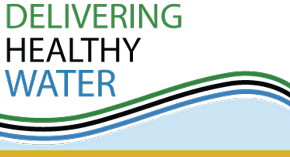Outputs
Published January 2014
The outputs from Workshops 1 and 2 have now been published in the peer reviewed Journal ‘Environment International’ . Full details below:
Oliver DM, van Niekerk M, Kay D, Heathwaite AL, Porter J, Fleming LE, Kinzelman JL, Connolly E, Cummins A, McPhail C, Rahman A, Thairs T, de Roda Husman AM, Hanley N, Dunhill I, Globevnik L, Harwood VJ, Hodgson CJ, Lees DN, Nichols G, Nocker A, Schets C, & Quilliam RS (2014). Opportunities and limitations of molecular methods for quantifying microbial compliance parameters in EU bathing waters, Environment International 64, 124-128.
Available now
- The full report from workshop 3 is available to view or download here.
Delivering Healthy Water workshop 3
9th – 10th October 2012, University of Stirling, Scotland
- Valuing coastal recreation linked to changes in water quality - The value of a day at the beach;
- Valuing changes in health risk relating to bathing water quality;
- The value of risk information.
The workshop centred on a series of seminars (available via the Table below) given by invited international experts and included questioning sessions. A break-out group activity was also used to prioritise and critique responses from a web-based survey administered by the Working Group to a ‘harder-to-reach’ UK and international audience beyond those who attended the workshop. This ensured that views of those stakeholders unable to attend this workshop were still accounted for with regard to identifying future research needs associated with the economics of technology change linked to bathing water quality assessment. An unedited list of all survey responses will be made available in due course via this site. A pdf copy of all of the presentations given at the workshop can be viewed via the links in the Table.
Delivering Healthy Water workshops 1 and 2
27th – 28th March 2012, UKWIR headquarters, London
The second workshop built on the work of the first in trying to evaluate how science providers can align with the needs identified in day one by the science users. Furthermore an attempt was made to identify areas of uncertainty or specific limitations that could hinder meeting those needs now or in the near future.
Interspersed between the discussion sessions was a series of short presentations from some of the invited experts on a specified subject designed to inform and enliven the discussions. Pdf files of these presentations are available to view below
| Presenter | Title | Workshop |
| Tim Wade (USEPA) | The USEPA perspective on the use of molecular tools for regulating recreational water: the journey so far | 1 |
| Ian Dunhill (Environment Agency) | The regulatory challenges of transition to molecular tools? – view from the UK | 1 |
| Andy Cummins (Surfers Against Sewage) | A beach users’ view on the role of new technology for bathing water monitoring | 1 |
| Jonathan Porter (Environment Agency) | A molecular biologist’s view on the most promising molecular tools for the UK regulatory community | 1 |
| Valerie J Harwood (University of South Florida) | MST: where are we now and where are we heading? Some highlights | 2 |
| Ana Maria de Roda Husman (RIVM) | Delivering Healthy Water – waves ahead | 2 |
| David Kay (CREH) | A roadmap of science challenges ahead | 2 |
| Lidija Globevnik (European Topic Centre on Water) | Culture to Molecular: perceived advantages and limitations for EU waters | 2 |
Workshop reports
The two documents attached give a brief summary of the content and outcomes of workshops 1 and 2.
Future outputs
- Briefing papers and project updates will be available in due course outlining the current state of knowledge regarding:
- science and technology innovation in molecular quantification tools;
- current applications of molecular tools to catchment management; and
- the variety and scale of economic impacts associated with methodological transition from traditional quantification tools to molecular options for water quality regulation. It is envisaged that these documents will provide large and longer lasting impact to user communities.
- A Decision Making Framework (DMF) that will provide users with a consistent, comprehensive and co-ordinated strategy to caution or approve future proposals considered by the World Health Organisation for technology transitions linked to regulatory monitoring of microbial parameters. We will keep people informed of developments of the DMF.

